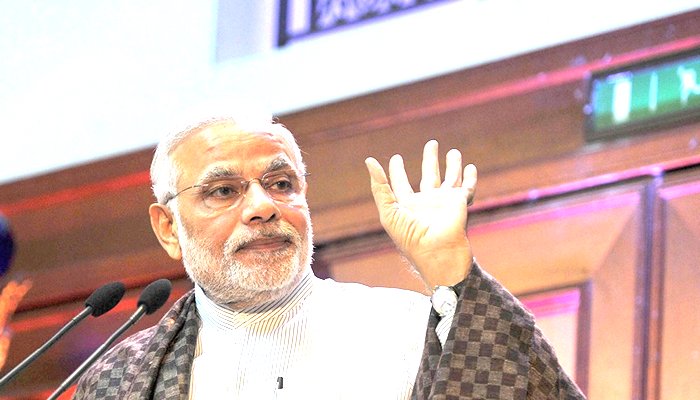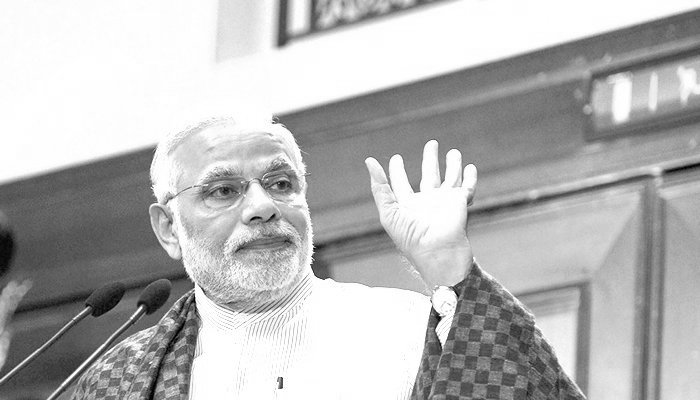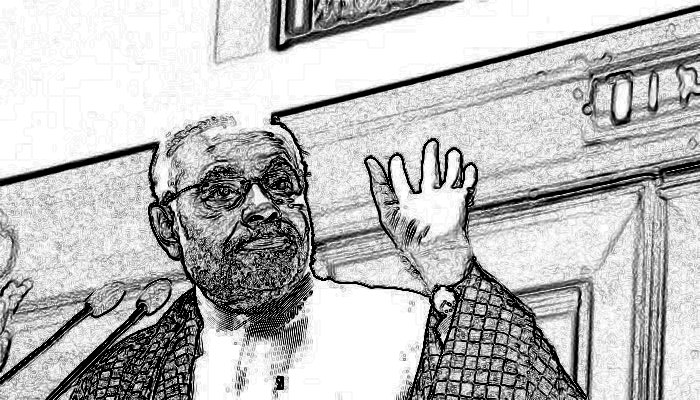
Residents use a boat to cross flood waters in Kota Bahru on December 28, 2014. Photo: RT / AFP / Mohd Rasfan. Photo by AFP Photo / Mohd Rasfan
We call upon the Ministry of Environment, Government of India, to stop pursuing the so-called Green Climate Fund as the means with which action to manage climate change can be financially supported. This so-called fund is in the end a means for the Western world – West Europe, Scandinavia, USA with Britain and Canada in tow, Australia and New Zealand, a feckless Japan and ditto South Korea – to maintain the empty but loud institutions they have set up by the dozens in the cause of climate change.
Inter Press Service has reported that the United Nations is seeking 100 billion US dollars per year by 2020 as part of a Green Climate Fund (GCF) “aimed at supporting developing countries strengthen their resilience and help adapt themselves to meet the foreboding challenges”. This is meretricious nonsense. Countries that the UN system, and the agencies of monetary ruin – World Bank, IMF, ADB and the like – call ‘developing’ do not need the prattling office-bearers of a crony international system to advise them. Countries of the South have plentiful intellectual, practical, financial and social resources to deal with climate change and the host of problems the Western countries have burdened our world with.
The Green Climate Fund, says the IPS report, may not be as realistic in its objectives as the Western-OECD alliance pretends but supporters of this Fund (naturally) are more concerned instead with how the target can be reached or neared: naturally because that is how they will derive a continuing relevance and legitimacy – both empty as far as we are concerned – which allows them to run expensive institutions and pay out immodest consultancies that serve only the Western-OECD alliance. Ignored by this glib army is the fact that, beginning from their own austerity-wracked countries, public finance for such profligacy is absent. Still they demand, like fahrenheit Shylocks, public finance for subsidies with which to “attract and leverage private investments”.
A host of ancillary agencies contributes to perpetuating this long-running fraud. Amongst the confused babble of Western-OECD support for the so-called Green Climate Fund can be found three common clauses: one, that developed nations should commit to increasing all public funding flows to 2020; two, that developed countries use new and innovative sources of finance toward the 2020 goal (such as redirected fossil fuel subsidies, carbon market revenues, financial transaction taxes, export credits); three, that all parties should clarify the definition of climate finance and development of methodologies so that accounting and reporting are improved.
These are nothing but cunning gambits advanced as justification for the continuing tenure of the Western-OECD climate-related institutions and their circles of charmed academic and finance cronies. First, developed countries have fallen short of basic overseas aid commitments for the last two generations, never mind climate finance. Under continuing austerity, it is foolish for the UN and its supporters on this subject to still preach in favour of a funding mechanism that rests on Western largesse.
Second, the ‘new and innovative’ has been experimented with for a decade with carbon exchanges and has made no impact (just as ‘deregulated’ energy markets, which are older, have not led to more sensible energy use by consumers or producers). But this is proposed in order to cement the positions of a new trading class, and its banking adjutants, in the area of climate finance. Third, the call for definitions and methodologies is part of the Western-led drive towards normative standards for the world, which will rely on its own Western bureaucracy to enforce the next mutation of trade sanctions on independent-minded countries and Southern country blocs – climate sanctions.
Our message to the profiteers of this true emerging market is: we can see through your ruse and know your game. Stop it now.
– Rahul Goswami


 This is unlikely to result in any constructive recognition of all that is linked. A country’s total emissions is one part of the ‘development’ picture and others are at least as important. There are also tons of CO2 emitted per capita (India has often said that its per capita emissions are far below those of the West). And there is per capita consumption of electricity (which is still mainly generated by burning coal).
This is unlikely to result in any constructive recognition of all that is linked. A country’s total emissions is one part of the ‘development’ picture and others are at least as important. There are also tons of CO2 emitted per capita (India has often said that its per capita emissions are far below those of the West). And there is per capita consumption of electricity (which is still mainly generated by burning coal). Thus the message to policy-makers is clear – what counts is what you do at home, in states and districts. The expectation that “international cooperation” should guide effective adaptation at all levels is no longer (and in our view has never been) tenable.
Thus the message to policy-makers is clear – what counts is what you do at home, in states and districts. The expectation that “international cooperation” should guide effective adaptation at all levels is no longer (and in our view has never been) tenable.